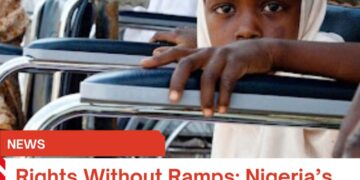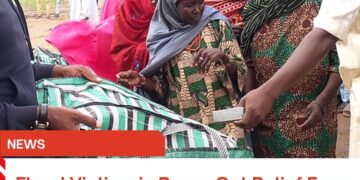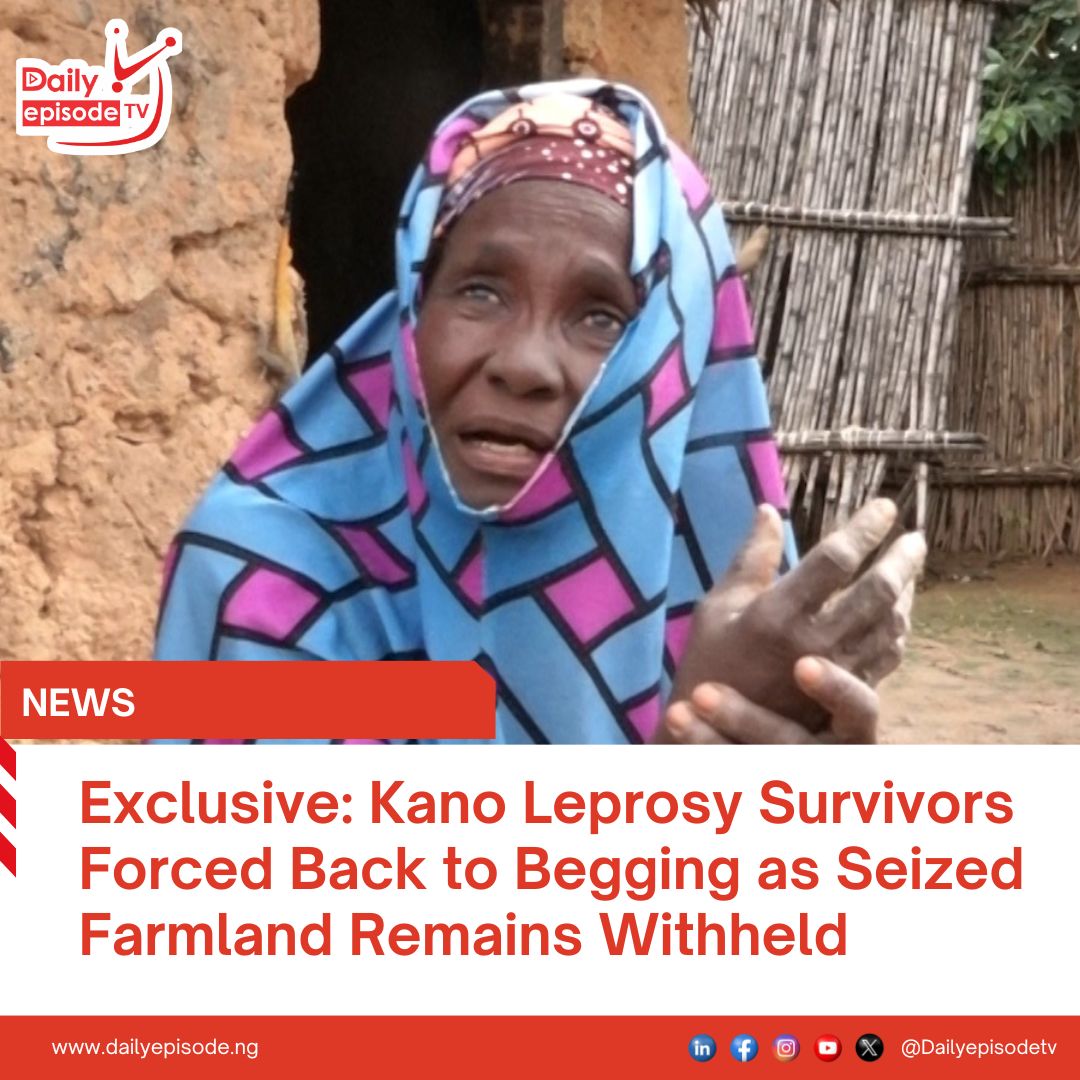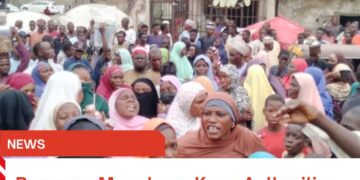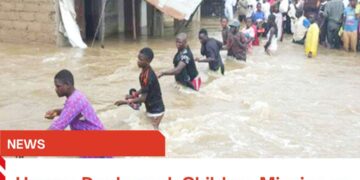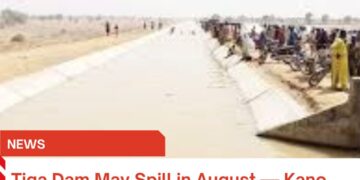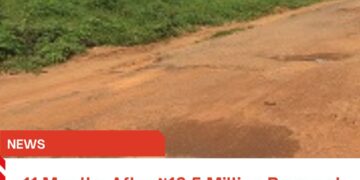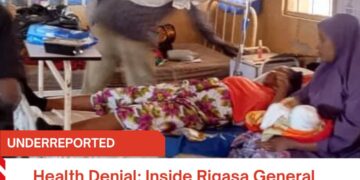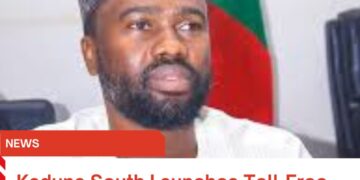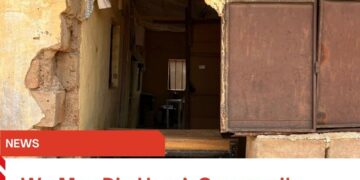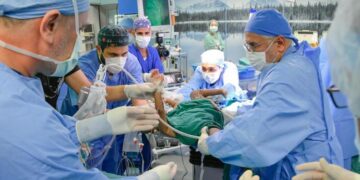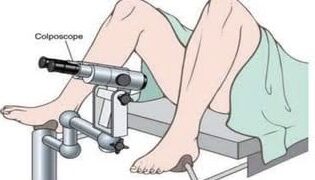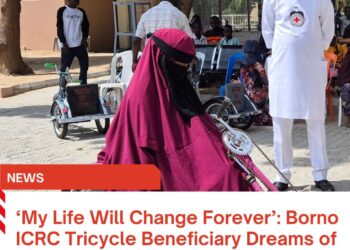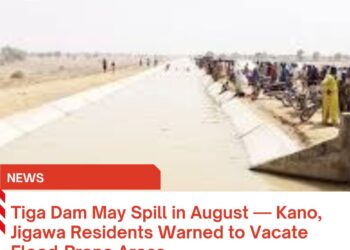Whenever Hauwa Liman, one of the primary two pupils in Tako-Wangwa Primary School in Mokwa Local Government of Niger State, steps outside her father’s bungalow to move to her school for learning. Her thoughts are often filled with mixed feelings about meeting her friends and learning in a decayed classroom and sitting on the bare floor to learn.
The school is situated in the heart of the TakoWangwa community, where children learn in an unconducive environment with a shortage of teaching materials and classrooms. The children often wear a worried face whenever the weather becomes cold or heavy clouds dominate the atmosphere, halting their learning process.
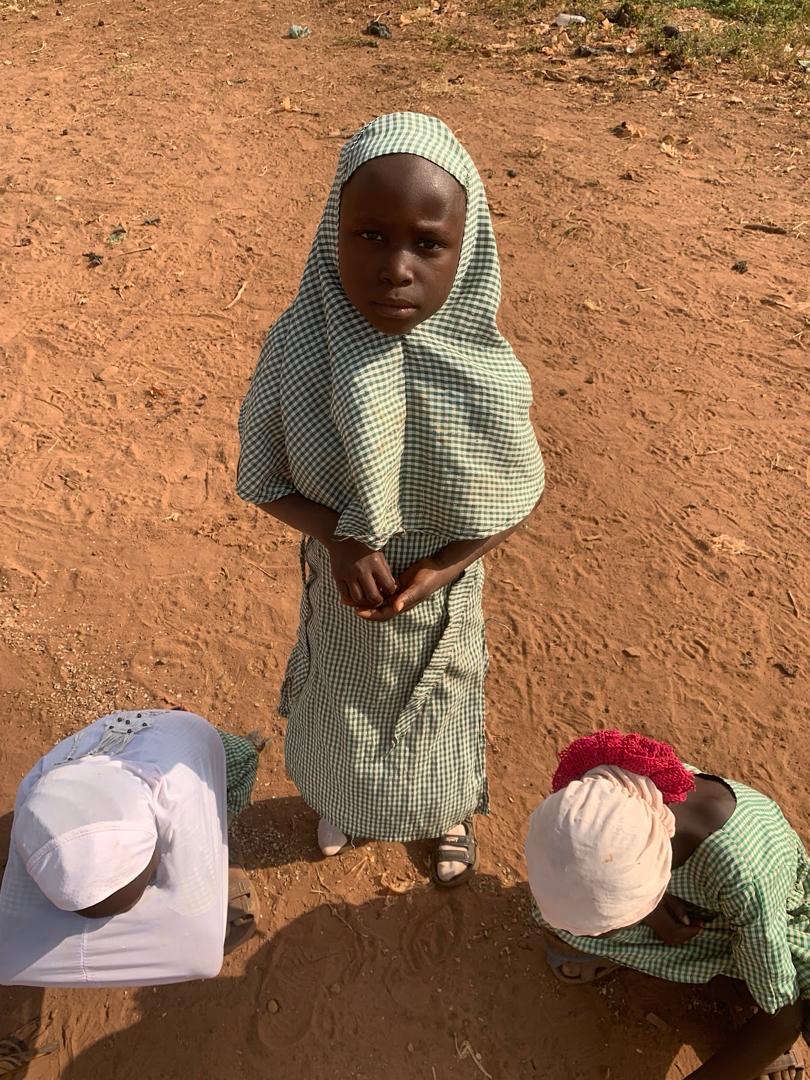
“They said they would fix our class, but we sat on the floor,” Liman said, with anger on her face. If we get to class 4 or 5, and 6, that is when we would sit on a chair,” Hauwa told Daily Episode.
READ MORE:Aftermath Of Kaduna Free Education Policy; Rising Number Of Out Of School Children
She further stated that she would not exchange her dream of pursuing a nursing career for anything. “We had finished the examination but still sat on the bare floor without an option. We hardly miss schoo”l, she told Daily Episode.
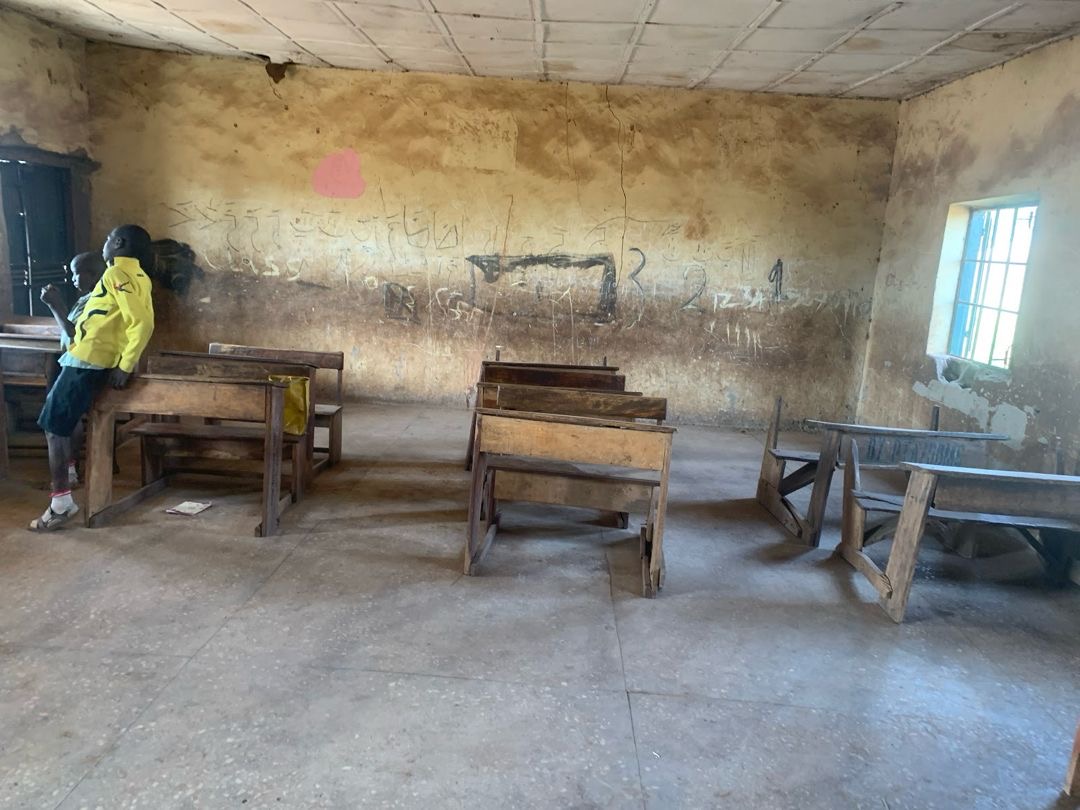
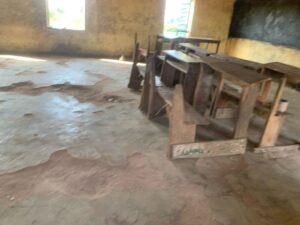
The little girl is among pupils in the state that faces the brunt of poor educational infrastructure. In all her career dreams, the pupil hopes to become a nurse, which forces her to attend all her lessons despite an unconducive classroom bedevilling her school.
The situation is not limited to only Primary Two alone. Muhammad Muhammad, a pupil who sits on the bare floor in Primary One, told Daily Episode that a whirlwind blew off the roofing of their classes, and residents, particularly children, played ball in the classes.
“When I come to class, I often sit on the bare floor to learn. I’m not happy sitting on the ground while learning. Sometimes, I miss school because I don’t like sitting on the ground,” Muhammad sadly expressed his anger.
“We always fear getting closer to the place. We are often cautioned not to get close to the place, especially in the rainy time”.
The schoolchildren’s concern is not to further increase the number of out-of-school children in Niger State, as 600,000 pupils dropped out in the state between 2021 and 2022. UNICEF’s data further noted that 10.5 million pupils aged 5-14 years are not in school. These children’s future in Northern Nigeria looks bleaker.
The lack of proactiveness to address decayed and dilapidated schools in the state has further worsened schools’ conditions, including Takowangwa Primary School, which is not well-structured and equipped with basic school needs.
Auwal Yusuf, one of the primary 5 pupils who walked barefooted when this reporter visited his school in December, told Daily Episode that he is dreaming of wearing a military uniform to impress his parents for their educational courage.
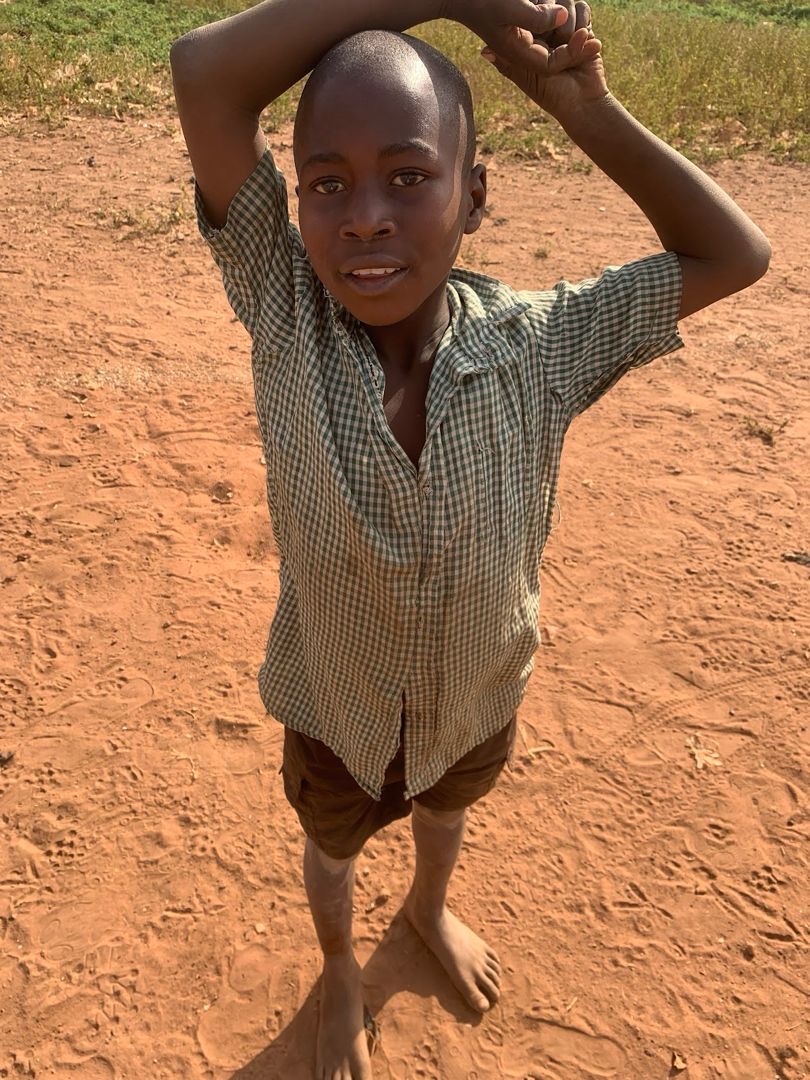
Due to poor infrastructure and an unconducive environment, Yusuf hopes that his parents can afford another school to completely leave his present school to pursue his dream career.
Sadly, the pupil further stated that he rarely misses school to be focused on his education. But Yusuf fears that his educational pursuit could end, as his parents couldn’t afford to enrol him in a well-structured and conducive school.
“I hardly miss school. I come to school every everyday. I want to leave this school and start a new school because of the conditions of the school because I want to become a soldier.”
Head Teacher Decries Absence of Chairs, Floods Threatening Classes
When this reporter visited the community, the school was about to close for the year, as Umaru was the only school teacher available in his office during this reporter’s visit on December 9, 2024.
On his part, assistant headmaster Bala Umaru told Daily Episode that his school not only faces a shortage of chairs and tables, but flooding is threatening their offices and classrooms, which often poses a threat to the students.
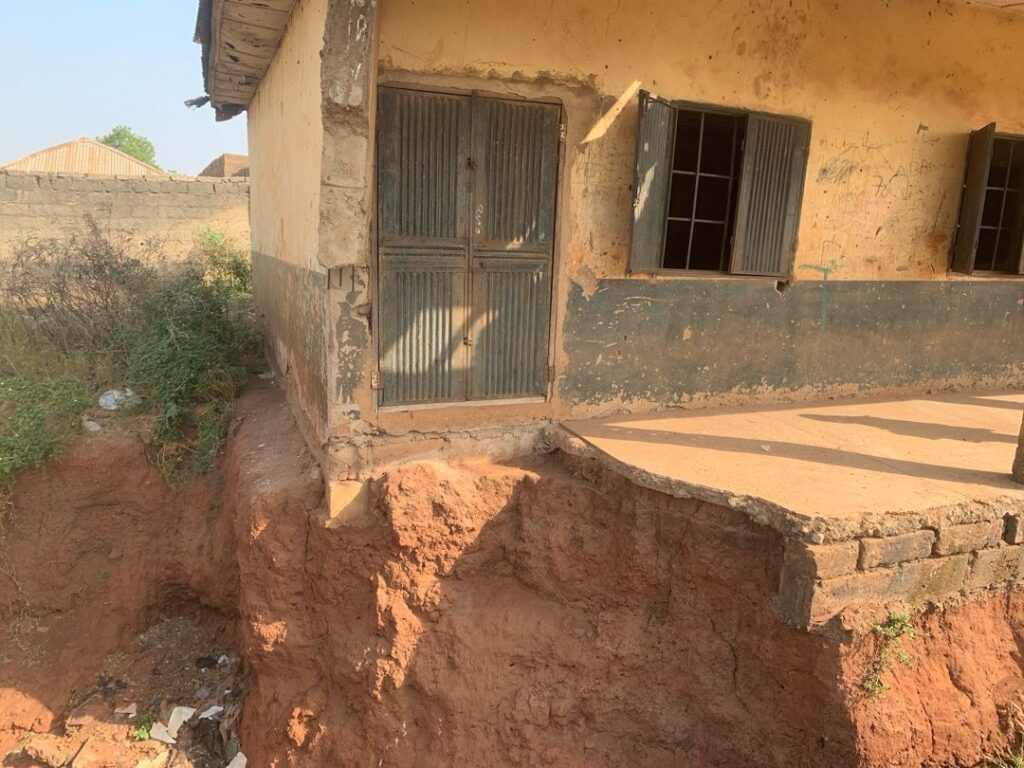
The flood had already forced the school to close the class, which remained inaccessible to the school. However, the class and other buildings are instinctively collapsing.
“Because of erosion threatening the school, the school had written several letters to local authorities. Even E.S. is aware of our pligh”t, he said in his office. He visited our schools, but no action was taken.”
“The few chairs that we have, we used Parents Teachers Association (PTA) fees to get them for the students. And we fix some broken ones with few.”
Before this reporter’s visit to the school, teachers told Daily Episode that roofs of some classes were repaired to not further compound the school’s mystery amid plights bedevilling the school. The head teacher believes that the school trajectory will soon come to an end as the present administration is budgeting higher for the educational sector.
He corroborated his pupils’ claim that primary 1 and 2 pupils sit on the floor, explaining that primary three, four and six pupils manage a few chairs with the help of Parent Teachers Association (PTA) fees.
They promised to give us “leave grant” since June, but we haven’t received anything from them. Also, our 7.5% fee is still not paid,” Umaru told Daily Episode.
To foster children’s safety, the school teachers often caution students to keep away from the gully erosion threatening the school. “We had warned them of getting closer to the gully, especially in rainy times,” a teacher who preferred not to be named told this paper.
Decayed Infrastructure Amid Spending On Ministry of Basic & Secondary Education In The State
This reporter reviewed the 2024 approved budget of the state. Data available on the budget revealed that 76.29 billion was approved for the educational sector, with over 12.8 billion alone allocated for the Ministry of Basic and Secondary Education in the state.
Daily Episode checks on 2024 budget performance documents of the state, for instance, show administrative classification expenditures’ amounts stood at 20,308,792,980.22 for the Ministry of Basic and Secondary Education, with Q3 performance showing N551,455,313.50, representing 8.6%.
In the 2024 final budget under capital expenditure, the amount stood at N15,492,433,545.00, with budget performance (Q1 to Q3) showing N196,535,989.85, representing 1.3%.
Also, N122,845,763.64 was budgeted under other expenditures by administrative classification with both performance year (Q1-Q3) and % performance. Year to date against the 2024 final budget recorded nothing.
Capital expenditure is used for the purchase of equipment and other assets. But many basic and secondary schools in the state, including TAKOWANGWA Primary School in Mokwa, are facing infrastructure problems coupled with teaching materials. Several schools in the state lack teaching materials and chairs, forcing students to sit on bare floors.
Government Fails To Respond
The Commissioner for Basic and Secondary Education, Dr Hadiza Muhammad, was not available for comment. SMS sent to her was not attended to as of press time.
The spokesman of Niger State Universal Basic Education Board (NSUBEB), Mr Idris Kolo, did not respond to several calls from our reporter. WhatsApp and SMS messages were also ignored.
LIKE & FOLLOW US ON FACEBOOK, X, INSTAGRAM, LINKEDIN & YOUTUBE



